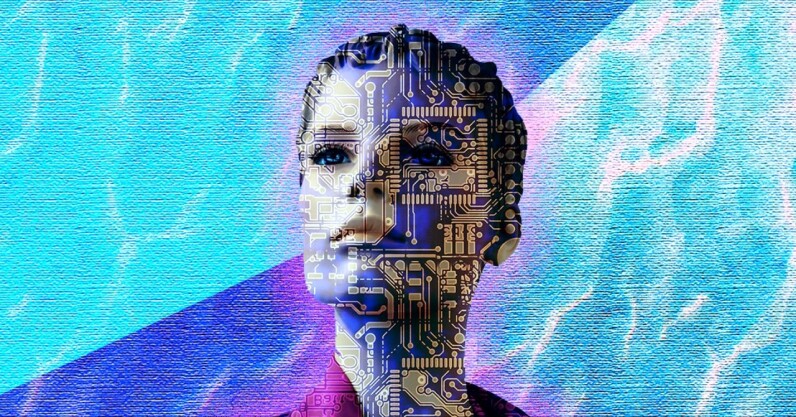THENEXTWEB.COM
Unfair decisions by AI could make us indifferent to bad behaviour byhumans
Artificial intelligence (AI) makes important decisions that affect our everyday lives. These decisions are implemented by firms and institutions in the name of efficiency. They can help determine who gets into college, who lands a job, who receives medical treatment and who qualifies for government assistance.As AI takes on these roles, there is a growing risk of unfair decisions or the perception of them by those people affected. For example, in college admissions or hiring, these automated decisions can unintentionally favour certain groups of people or those with certain backgrounds, while equally qualified but underrepresented applicants get overlooked.Or, when used by governments in benefit systems, AI may allocate resources in ways that worsen social inequality, leaving some people with less than they deserve and a sense of unfair treatment.Together with an international team of researchers, we examined how unfair resource distribution whether handled by AI or a human influences peoples willingness to act against unfairness. The results have been published in the journal Cognition.With AI becoming more embedded in daily life, governments are stepping in to protect citizens from biased or opaque AI systems. Examples of these efforts include the White Houses AI Bill of Rights, and the European parliaments AI Act. These reflect a shared concern: people may feel wronged by AIs decisions.So how does experiencing unfairness from an AI system affect how people treat one another afterwards?AI-induced indifferenceOur paper in Cognition looked at peoples willingness to act against unfairness after experiencing unfair treatment by an AI. The behaviour we examined applied to subsequent, unrelated interactions by these individuals. A willingness to act in such situations, often called prosocial punishment, is seen as crucial for upholding social norms.For example, whistleblowers may report unethical practices despite the risks, or consumers may boycott companies that they believe are acting in harmful ways. People who engage in these acts of prosocial punishment often do so to address injustices that affect others, which helps reinforce community standards.We asked this question: could experiencing unfairness from AI, instead of a person, affect peoples willingness to stand up to human wrongdoers later on? For instance, if an AI unfairly assigns a shift or denies a benefit, does it make people less likely to report unethical behaviour by a co-worker afterwards?Across a series of experiments, we found that people treated unfairly by an AI were less likely to punish human wrongdoers afterwards than participants who had been treated unfairly by a human. They showed a kind of desensitisation to others bad behaviour. We called this effect AI-induced indifference, to capture the idea that unfair treatment by AI can weaken peoples sense of accountability to others. This makes them less likely to address injustices in their community.Reasons for inactionThis may be because people place less blame on AI for unfair treatment, and thus they feel less driven to act against injustice. This effect is consistent even when participants encountered only unfair behaviour by others or both fair and unfair behaviour. To look at whether the relationship we had uncovered was affected by familiarity with AI, we carried out the same experiments again, after the release of ChatGPT in 2022. We got the same results with the later series of tests as we had with the earlier ones.These results suggest that peoples responses to unfairness depend not only on whether they were treated fairly but also on who treated them unfairly an AI or a human.In short, unfair treatment by an AI system can affect how people respond to each other, making them less attentive to each others unfair actions. This highlights AIs potential ripple effects in human society, extending beyond an individuals experience of a single unfair decision.When AI systems act unfairly, the consequences extend to future interactions, influencing how people treat each other, even in situations unrelated to AI. We would suggest that developers of AI systems should focus on minimising biases in AI training data to prevent these important spillover effects.Policymakers should also establish standards for transparency, requiring companies to disclose where AI might make unfair decisions. This would help users understand the limitations of AI systems, and how to challenge unfair outcomes. Increased awareness of these effects could also encourage people to stay alert to unfairness, especially after interacting with AI.Feelings of outrage and blame for unfair treatment are essential for spotting injustice and holding wrongdoers accountable. By addressing AIs unintended social effects, leaders can ensure AI supports rather than undermines the ethical and social standards needed for a society built on justice.Chiara Longoni, Associate Professor, Marketing and Social Science, Bocconi University; Ellie Kyung, Associate Professor, Marketing Division, Babson College, and Luca Cian, Killgallon Ohio Art Professor of Business Administration, Darden School of Business, University of VirginiaThis article is republished from The Conversation under a Creative Commons license. Read the original article. Story by The Conversation An independent news and commentary website produced by academics and journalists. An independent news and commentary website produced by academics and journalists. Get the TNW newsletterGet the most important tech news in your inbox each week.Also tagged with
